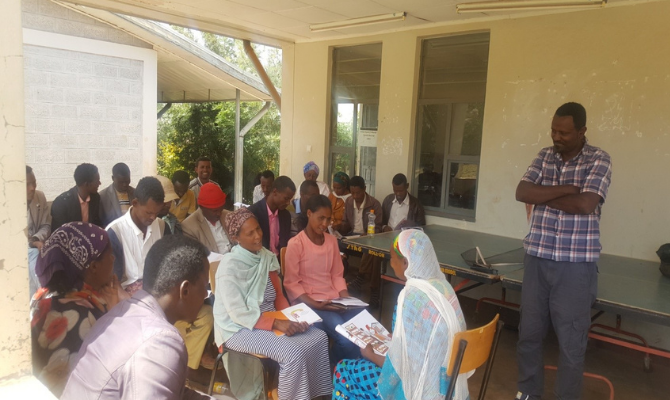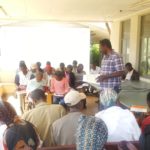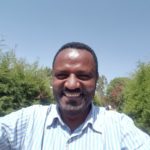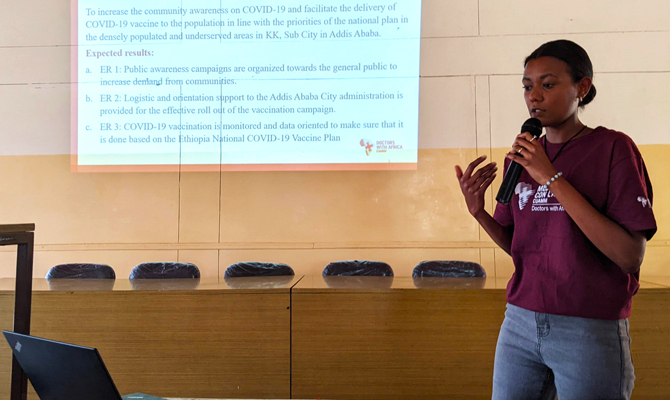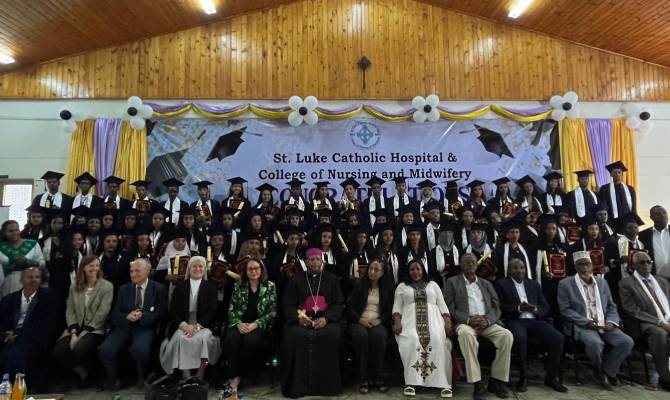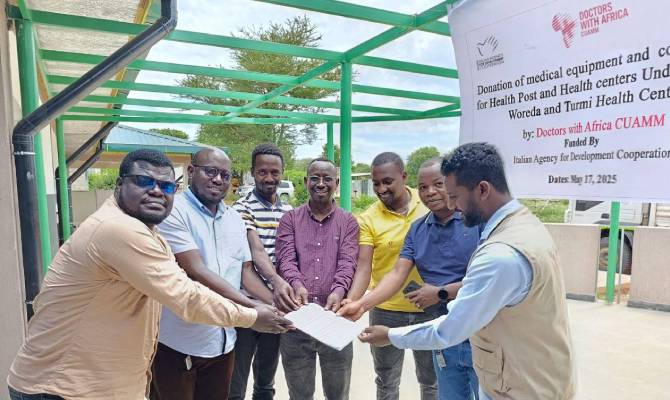In the field there are many figures, sometimes not very visible, who work hard every day to implement and make the various projects concrete. Doctors with Africa CUAMM has always worked ‘with’ Africa, a preposition that is the measure of its intervention: it works side by side with the local population. In addition to the many operators who leave Italy and spend their personal and professional lives in the field, there are just as many local operators, who also play fundamental roles in ensuring that the ‘great machine of good’ continues to function.
Among them is Berhanu Gulo, Project Officer in Ethiopia, who tells us about his background and the activities he deals with on a daily basis: “Since I joined CUAMM, I have been working on a project on the prevention and treatment of cervical cancer in the Wolisso area, which has received excellent feedback from both the beneficiaries and the local authorities. I also worked on the recently completed NICU project to improve access and quality of neonatal care, which received great appreciation by the Ministry of Health”.
Berhanu works at the CUAMM coordination office in Addis Ababa, supporting the project leader in planning, monitoring and implementing project activities.
“My day is made up of many meetings, which are essential for building relationships of trust and collaboration with partners and communities, enabling projects to be implemented in line with the real needs of the beneficiaries. I frequently meet with representatives of the Ministry of Health and the Department of Health of the Oromia region to ask them to actively collaborate in the implementation of project activities. I also meet with those involved in the projects, from health directors to community activists, to support them in their activities and to incorporate needs to continue improving the services offered. These many meetings have taught me that relationships are the strategic key to project development”.
These meetings are also fundamental in shortening the great physical distances that often exist between the various places of intervention and that make it difficult for operators to communicate information to the beneficiaries and the context in which the project is developed.
“What excites me about my job is the opportunity to be in contact with expatriate and local colleagues, and to continuously learn from this cultural and professional exchange. What motivates me on a daily basis is working ‘for’ and ‘with’ communities, and the idea that projects like the ones I have worked on can contribute to improving health services for people in my country.”

